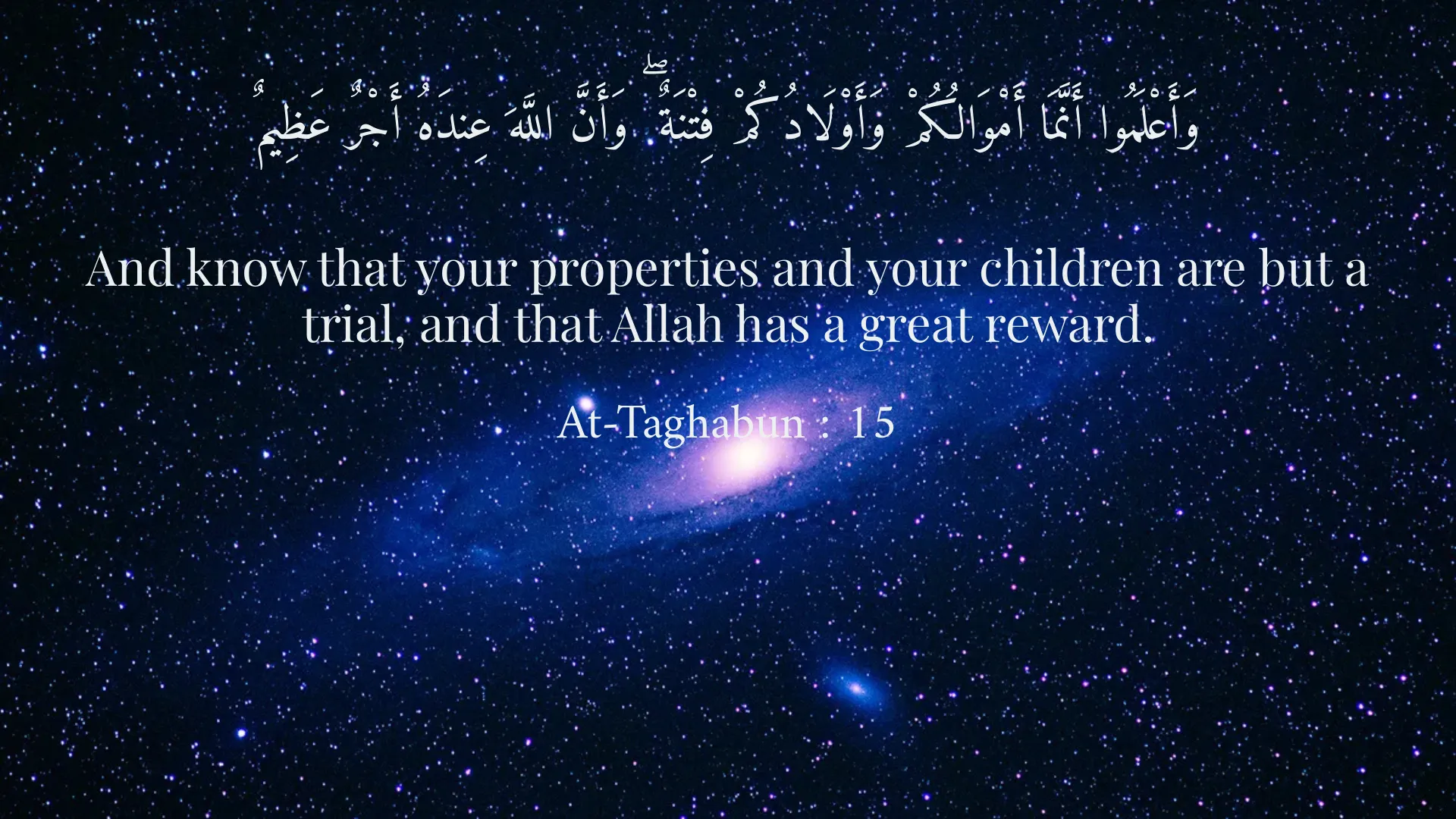Quranic Answer

The Holy Quran serves as an invaluable guide for humanity, urging us to reflect on the wonders of creation and recognize the immense power and wisdom of Allah. One of the most profound messages encapsulated within its verses is the reminder that the earth and everything in it are manifestations of Divine authority. As stewards of this earth, we, as human beings, are entrusted with the monumental responsibility of being kind to nature and safeguarding the environment that sustains us. Through our actions and choices, we have the potential to either uplift or violate the sanctity of the natural world. In Surah At-Taghabun (64:15), Allah reminds us, 'And know that your properties and your children are but a trial, and that Allah has a great reward.' This verse illustrates the notion that our wealth, possessions, and even our relationships are tests meant to gauge our behavior and principles. They are transient, while the Earth and its ecological balance are of everlasting significance. The Quran emphasizes that these earthly possessions, characterized by their material nature, should not lead us to become arrogant or misuse them. Instead, we are called to utilize these resources judiciously and in a manner that reflects our respect for the divine creation. Similarly, in Surah Al-A'raf (7:31), Allah instructs, 'And eat and drink, but be not excessive. Indeed, He likes not those who commit excess.' This verse compels us to maintain a balance in our consumption and to recognize the concept of moderation. Wastefulness is a direct infringement on the resources that Allah has graciously provided. As we indulge in the bounties of nature, we should remain conscious of our actions and their far-reaching consequences. Adopting a lifestyle of moderation not only honors our faith but also nurtures the environment. It entails making informed choices about what we consume and encouraging sustainable practices that protect the delicate ecosystems around us. The protection of nature and its various elements—forests, rivers, air, and biodiversity—bears profound significance for current and future generations. Each aspect of our environment plays a pivotal role in maintaining the balance required for life to thrive. Our forests serve as oxygen producers, carbon sinks, and biodiversity reservoirs. Rivers and lakes support numerous life forms and provide freshwater, which is a fundamental necessity for survival. The air we breathe is essential; its purity affects our health directly. However, the relentless exploitation of these resources poses a critical threat. Deforestation, pollution, and climate change are dire challenges that have emerged as a result of human excess and negligence toward nature. The ramifications of such actions are devastating—not only do they compromise environmental health, but they also jeopardize the well-being of future generations. If we do not take immediate action to protect and restore our natural surroundings, the repercussions will lead to drought, loss of biodiversity, and increased natural disasters, ultimately endangering human existence itself. Thus, the Quran's teachings underscore the necessity of being kind to nature as not just a moral obligation but also an essential aspect of our collective faith in Allah. Recognizing the reality that humanity is an integral part of a larger ecosystem invigorates our duty to act with mindfulness and compassion towards all living beings. It transcends mere reverence for the environment; it calls for active involvement in fostering ecological conservation. Being kind to nature can manifest in various practical ways. For instance, individuals can adopt more sustainable practices such as reducing waste, engaging in recycling, conserving water, and supporting renewable energy initiatives. Communities can come together to restore damaged ecosystems through reforestation or beach clean-up projects. Educational initiatives in schools can teach younger generations about environmental stewardship, instilling a sense of responsibility towards nature early on. Furthermore, collaborative efforts among global communities at government and organizational levels can lead to effective policies that prioritize environmental sustainability. Agreements and laws, such as the Paris Agreement, seek to address global warming and promote green technologies. These collective endeavors reflect our shared responsibility and highlight the positive impact that united actions can yield in conserving our sacred Earth. In conclusion, protecting nature is not merely a secular issue but intricately woven into the essence of Islamic values and teachings found in the Holy Quran. The verses remind us that our existence is closely linked with our environment, and while we enjoy the divine bounty bestowed upon us, we are simultaneously charged with the duty to respect and safeguard it. To be mindful of our consumption, to embrace moderation, and to actively participate in conservation efforts are ways we can fulfill our obligations as caretakers of the Earth. As we reflect on the balance of creation and our role within it, let us strive for a world that honors nature and recognizes the intrinsic rewards embedded in respecting and nurturing the environment for generations to come.
Related Verses
وَأَعْلَمُوا أَنَّمَا أَمْوَالُكُمْ وَأَوْلَادُكُمْ فِتْنَةٌ ۖ وَأَنَّ اللَّهَ عِندَهُ أَجْرٌ عَظِيمٌ
And know that your properties and your children are but a trial, and that Allah has a great reward.
At-Taghabun : 15
وَكُلُوا وَاشْرَبُوا وَلَا تُسْرِفُوا إِنَّهُ لَا يُحِبُّ الْمُسْرِفِينَ
And eat and drink, but be not excessive. Indeed, He likes not those who commit excess.
Al-A'raf : 31
Short Story
One day in the heart of the forest, a man was talking to the trees and animals. He said, 'I love you and will always protect you.' The trees and birds responded joyfully, and nature resonated with him. The man realized that protecting nature was, in fact, loving its Creator.